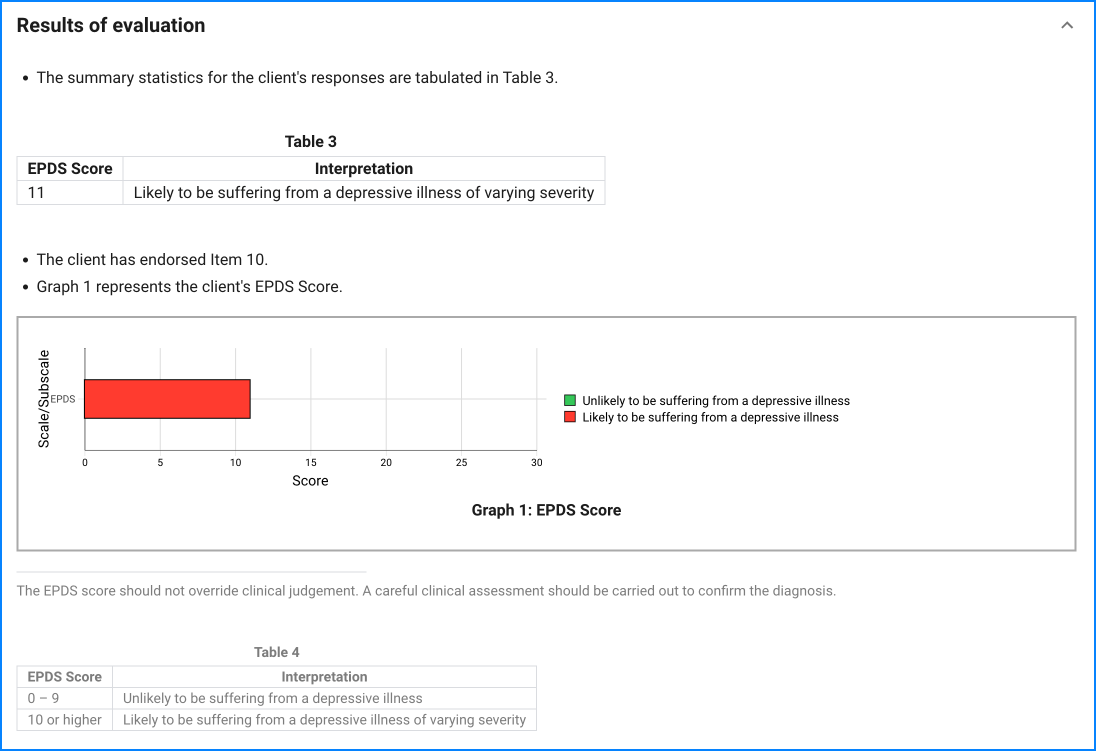Since the questionnaire relies on client self-report, all responses should be verified by the clinician, and a definitive diagnosis is made on clinical grounds taking into account how well the client understood the questionnaire, as well as other relevant information from the client.
The Edinburgh Postnatal Depression Scale (EPDS) has been developed to assist primary care health professionals to detect mothers suffering from postnatal depression; a distressing disorder more prolonged than the 'blues' (which occur in the first week after delivery) but less severe than puerperal psychosis.
Previous studies have shown that postnatal depression affects at least 10% of women and that many depressed mothers remain untreated. These mothers may cope with their baby and with household tasks, but their enjoyment of life is seriously affected and it is possible that there are long-term effects on the family.
The EPDS was developed at health centres in Livingston and Edinburgh. It consists of ten short statements. The mother selects which of the four possible responses is closest to how she has been feeling during the past week. Most mothers complete the scale without difficulty in less than 5 minutes.
The validation study showed that mothers who scored above a threshold 12/13 were likely to be suffering from a depressive illness of varying severity. Nevertheless the EPDS score should not override clinical judgement. A careful clinical assessment should be carried out to confirm the diagnosis. The scale indicates how the mother has felt during the previous week, and in doubtful cases it may be usefully repeated after 2 weeks. The scale will not detect mothers with anxiety neuroses, phobias or personality disorders.
Endorsement of item 10 (Suicidal Thoughts) is an indicator of possible suicidal risk. A final decision about the actual risk of self-harm requires further assessment and clinical interview. Further assessment of suicide risk can be made by asking about the “4 P’s”: past suicide attempts, a plan, probability of completing suicide, and preventive factors.
Instructions for the user:
1. The mother is asked to select the response which comes closest to how she has been feeling in the previous 7 days.
2. All ten items must be completed.
3. Care should be taken to avoid the possibility of the mother discussing her answers with others.
4. The mother should complete the scale herself, unless she has limited English or has difficulty with reading.
5. The EPDS may be used at 6-8 weeks to screen postnatal women. The child health clinic, postnatal check-up or a home visit may provide suitable opportunities for its completion.



